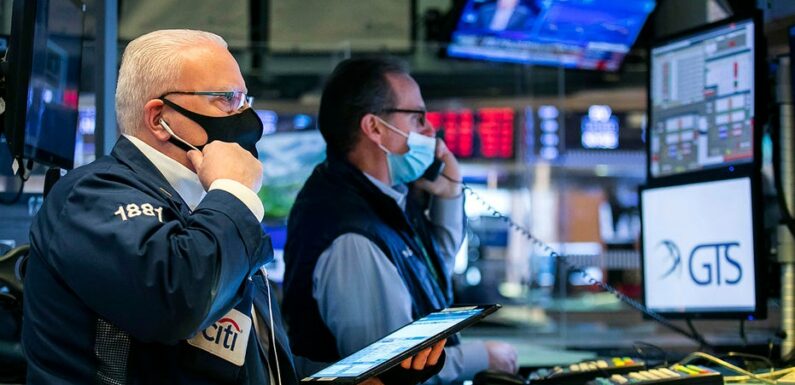
U.S. value fates were exchanging lower heading into the principal exchanging meeting of the week as the spread of the Delta variation takes steps to sap some speed from the financial recuperation.
Second-quarter income season might be slowing down, however it isn’t going discreetly. The retail area will become the overwhelming focus when results are normal from Walmart, Target, Home Depot, Lowe’s, Macy’s and Kohls to give some examples.
Financial backers will give close consideration to direction about what the flood in Delta variation cases may mean for customer spending.
Wall Street completed out last week with little gains and new highs for the S&P 500 and Dow Jones Industrial Average.
The benchmark S&P 500 rose 0.2% and scored its second-consecutive week by week increment. The Dow and the Nasdaq edged up under 0.1%. The S&P 500 rose 7.17 focuses to 4,468. The Dow added 15.53 focuses to 35,515.38, and the Nasdaq got 6.64 focuses to 14,822.90.
Stocks in the S&P 500 were almost uniformly parted among champs and washouts. Gains in innovation, medical care and family products organizations offset misfortunes by banks, energy stocks and different areas. The Russell 2000 list of little organizations fell 20.96 focuses, or 0.9%, to 2,223.11, another sign brokers were stressed over future monetary development.
Additionally pushing down financial backer good faith was the University of Michigan buyer estimation list, which tumbled to 70.2 from its past degree of 81.2 in July. That was the biggest drop in notion since April 2020, when the pandemic took its underlying grasp on the country.
The startlingly terrible drop in the overview’s perusing was primarily because of the spread of the delta variation of the Covid, which has made emergency clinics top off with unvaccinated patients across the U.S.
In the mean time, Asian offers slipped Monday, in the midst of stresses over flooding Covid diseases in the locale, just as worries about the drawn out sway from the Afghan government’s breakdown.
Japan’s benchmark Nikkei 225 drooped 1.7% to 27,502.21 in evening time exchanging, while Australia’s S&P/ASX 200 slipped 0.5% to 7,591.70. Hong Kong’s Hang Seng plunged 1.2% to 26,087.92, while the Shanghai Composite was minimal changed, creeping up under 0.1% to 3,518.09. South Korean business sectors were shut for Liberation Day, a public occasion.
Investigators said the somewhat sluggish inoculation rollouts in Asia are pushing down financial backer opinions. Japan, Thailand and Malaysia are among countries revealing a few record every day new cases as of late and inoculation rollouts in numerous nations have been temperamental or outperformed by infection floods.
“This is loosening up effectively stretched courses of events to group resistance, requiring occasional lockdowns to obstruct increasing contamination rates,” said Venkateswara Lavanya at Mizuho Bank in Singapore.
“Asia stays the focal point of the spread, with the quantity of COVID cases in Vietnam, the Philippines and Thailand ascending throughout the end of the week.”
Experts said the Taliban clearing into Afghanistan’s capital might feel like a distant occasion, yet will without a doubt influence showcases somewhere else, including Asia.
“Indeed, markets will attempt to forget about this international seismic tremor: It’s simply Afghanistan; It’s far away,” said Rabobank in its day by day market critique. “This international bad dream is very likely just barely starting.”
In Japan, the public authority detailed the economy developed at a yearly pace of 1.3% in April-June, raising expectations for a progressive recuperation from the harm welcomed on by the pandemic. A few examiners had anticipated a constriction. Underlining development were worked on private utilization and private speculation, just as rising fares and imports.
In energy exchanging, benchmark U.S. unrefined fell 84 pennies to $67.60 a barrel. Brent unrefined, the worldwide norm, lost 84 pennies to $69.75 a barrel.
In money exchanging, the U.S. dollar tumbled to 109.42 Japanese yen from 109.56 yen. The euro cost $1.1789, creeping down from $1.1791.

Noah Williamson is best known as an author. He wrote number of books as well as news articles. He is a teacher of high school. He writes books and news articles side by side.Now he works an author in Financial Reporting 24 .
Disclaimer: The views, suggestions, and opinions expressed here are the sole responsibility of the experts. No Financial Reporting 24 journalist was involved in the writing and production of this article.

